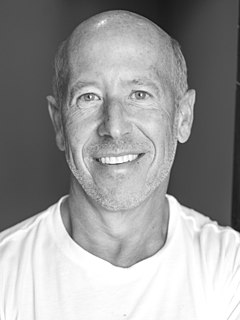A Quote by Barry Sternlicht
If I had high-ticker 10 percent financing, which would probably be the market rate, I would have to dump stuff. The interest payments would be killing me.
Related Quotes
If top marginal income tax rates are set too high, they discourage productive economic activity. In the limit, a top marginal income tax rate of 100 percent would mean that taxpayers would gain nothing from working harder or investing more. In contrast, a higher top marginal rate on consumption would actually encourage savings and investment. A top marginal consumption tax rate of 100 percent would simply mean that if a wealthy family spent an extra dollar, it would also owe an additional dollar of tax.
Cold-turkey deficit reduction would cause a significant recession. A recent analysis by the Congressional Budget Office estimated that going headlong over the cliff would cause our gross domestic product, which has been growing at an annual rate of around 2 percent, to fall at a rate of 2.9 percent in the first half of 2013.
The black unemployment rate has to be twice that of the white rate in the US. If the national unemployment rate were 6.8 percent, everyone would be freaking out. We ought to not take too much solace in the 6.8 percent, but ask ourselves what can we do to bring that down to white rates, which are below 4 percent now. Some of that has to do with education, but that's just part of the story. You find that those unemployment differentials persist across every education level. I think it means pushing back on discrimination and helping people who can't find work get into the job market.
There are simple things which would make sense. Take, say, weatherization, which would make a big cut in the unemployment rate. That's the kind of work that plenty of people are quick to do, and it would save individual households money, and it would make a significant reduction in the threats of climate change. But something is holding it back: the sociopathic character of market systems.
The most realistic distinction between the investor and the speculator is found in their attitude toward stock-market movements. The speculator's primary interest lies in anticipating and profiting from market fluctuations. The investor's primary interest lies in acquiring and holding suitable securities at suitable prices. Market movements are important to him in a practical sense, because they alternately create low price levels at which he would be wise to buy and high price levels at which he certainly should refrain from buying and probably would be wise to sell.
Philosophy would long ago have reached a high level if our predecessors and fathers had put this into practice; and we would not waste time on the primary difficulties, which appear now as severe as in the first centuries which noticed them. We would have the experience of assured phenomena, which would serve as principles for a solid reasoning; truth would not be so deeply sunken; nature would have taken off most of her envelopes; one would see the marvels she contains in all her individuals.
Both Christian and Adrian had worried there would be some piece of Strigoi left in him, but their fears had been about violence and bloodshed. No one would have guessed this: that living as a Strigoi had hardened his heart, killing any chance of him loving anyone. Killing any chance of him loving me. And I was pretty sure that if that was the case, then part of me would die too.
Would your reply possibly be this? Well, it all depends on what my tax rate will be on the gain you're saying we're going to make. If the taxes are too high, I would rather leave the money in my savings account, earning a quarter of 1 percent. Only in Grover Norquist's imagination does such a response exist.


































